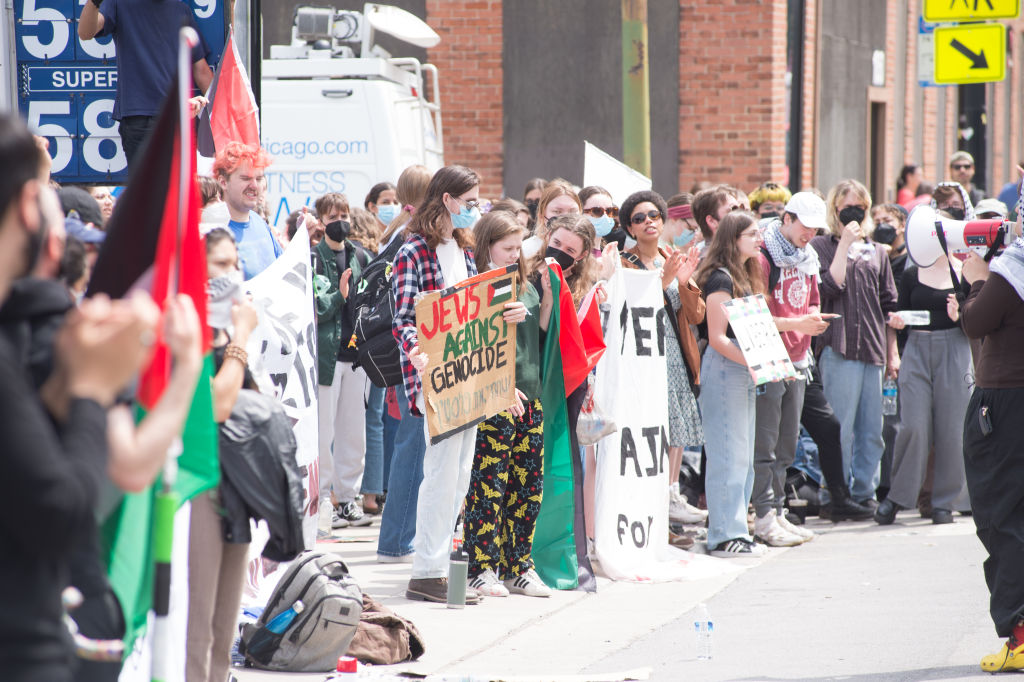America’s decline is not irreversible.
Euroblind

The contest for Europe’s best song became a…
Eurovision is a curious and kitschy little geopolitical song and dance competition which is popular in Europe and among “musical” communities on the American coasts. Musicianship aside, outcomes tend to be predictable. That, for instance, Ukraine was going to win in 2022, following the full-scale Russian invasion, was a foregone conclusion—the country got an equivalent of a pat on the back for having its south-eastern areas annexed.
The contest is scored by each participant country in two ways—by the jury of experts and by the audiences calling in to cast their “televotes.” This year, Eurovision continued its decades-long elite obsession with decadent sexuality as a flagship European value. The masses, on the other hand, appeared to be concerned about migration and terrorism. These competing priorities set the stage for the biggest controversy in the tournament’s history.
The winner was a Swiss man dressed in a micro mini and a fluffy pink coat and described as nonbinary by his handlers. If in 1913 the premiere of Igor Stravinsky’s The Rite of Spring, the ballet about pagan sexuality and human sacrifice, provoked a riot in Paris, the Swiss lad caused a yawn. His gender status broke no new grounds: such antics are expected from the contest organized by the European Broadcasting Union. The first trans-identified person to win Eurovision was the Israeli singer Dana International; that was way back in 1998, a quarter century ago.
The Yemenite Jewish queer sensation was followed by a torrent of gender nonconforming performers trying to outdo each other in sexual deviancy—or, failing that, at least proclaiming bisexuality. Continental gays love the Eurotrash genre, and Eurovision juries love them back. It doesn’t hurt a prospective E.U. member to send a drag queen or two to the iconic music competition—Slovenia sent three in 2004.
Turns out, the biggest scandal in Eurovision history was a gender-normative Jewish woman singing about survival. Eden Golan represented Israel this year with a song about the national trauma caused by the 10/7 Hamas massacre. Controversies began months ahead of the competition when the number—called “October Rain”—was deemed too political. Eurovision requested changes in lyrics and the song title and forbade Golan from wearing the yellow ribbon symbolizing the hundreds of hostages kidnapped by the Gazans.
The presence of an Israeli girl singing was too much for some Europeans caught up in the endless rage bath surrounding the war in Gaza. Golan was booed during the rehearsal and the performance, and a crowd of estimated 20,000 surrounded her hotel and the Malmo music hall hosting the competition. Among them was the most prestigious protester of them all, Greta Thunberg. The bizarre 21-year-old infant fortified her street cred by getting arrested.
The crowd charged Israel with genocide despite hard data showing that the Jewish state is waging a low civilian casualty urban warfare campaign, and despite the fact that both Hamas and the United Nations recently revised down the always questionable death figures. Anti-Zionists demanded the exclusion of Israel from the competition, just as Russia was booted in 2022. Israel, however, didn’t start any wars.
More than 100 police officers were required to escort Golan from her hotel room, where she was secluded for her own protection, into the concert hall. Her family was deemed to be a security risk and were not allowed to see her perform. A reporter was assaulted by the mob when he acknowledged being both an Israeli and a Jew. One journalist asked the Israeli singer if she feels that her presence at the competition is endangering all the other participants.
When Israel qualified for the finals, Great Britain, Ireland, Portugal and Switzerland privately threatened to withdraw from the competition. The nonbinary lady representing Ireland, dressed up as a witch in a Palestinian keffiyeh, batted her immense false eyelashes and said that she cried with her team when they got the news that Israel had advanced. Contestants rushed to insert praise for the Palestinian Arabs into their routines. For instance, the Portuguese entrant did her nails in the pattern of the Palestinian kaffiyeh—which was not deemed a political statement. It was topped off with petty bullying like the Greek performer pretending to fall asleep when Golan spoke during a press conference.
Golan was the living image of grace under pressure, looking unshaken throughout the ordeal and finished in the top five despite winning only a meager 52 points from the official jury. What was surprising, and a rebuke to the anti-Zionist Left, is that the Israeli singer did astoundingly well with audiences. She finished second in the popular vote, taking hefty shares of points across Europe, including, surprisingly, Ireland which recently lead the anti-Israel diplomatic offensive. The only two countries giving no points to Israel were Ukraine and Croatia—hardly the beating heart of Europe.
There is a connection between Danish populist Geert Wilders’ stunning electoral victory following the 10/7 attack and Germany awarding 20 audience points to Golan on Eurovision. Poll after poll reveals that Europeans are alienated by unchecked migration, which they view as their most pressing problem. When ordinary people watch a massive mob, most of them Middle Eastern and waving Palestinian flags, besiege a 20-year-old woman in her hotel room and stir up a hurricane of social pressure, led by agendered freaks and designed to force her out of the competition, they can imagine themselves in her place. They can, because of very real migrant violence, see themselves as victims of a terrorist raid.
Sure, they might be concerned about the resurgent Russia, which explains the consistent strong showings of Ukraine despite their artists’ political predilections and its dismal performance on the battlefield. But what worries them more is the home front, and that front goes through every population center in the West. Eurovision gave the disgruntled Europeans an opportunity to vent their frustrations. Political solutions to their problems are far from certain, but the ease with which fascists can be celebrated in contemporary Europe is not reassuring.
Eurovision 2024 might have been the greatest scandal in the show’s history. Unfortunately, it will likely be remembered as a harbinger of further chaos.
The American Mind presents a range of perspectives. Views are writers’ own and do not necessarily represent those of The Claremont Institute.
The American Mind is a publication of the Claremont Institute, a non-profit 501(c)(3) organization, dedicated to restoring the principles of the American Founding to their rightful, preeminent authority in our national life. Interested in supporting our work? Gifts to the Claremont Institute are tax-deductible.
We can’t let wannabe revolutionaries control our universities.
Professional, ideological, and even familial ties connect American institutions in a web of leftist influence.
There is broad agreement among Israelis and Arab governments on goals and tactics in Gaza, and the overarching goal of containing Iran.
The broad condemnation of Israel’s war of necessity delegitimizes the accusers, not Israel.
The invention of permanent refugee status guarantees perpetual war and misery.






